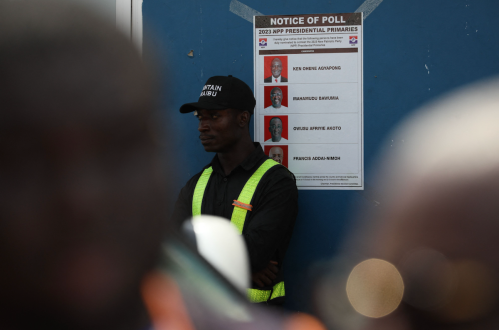High unemployment, the Gulf oil spill, and mounting fiscal worries clouded our July 4th celebrations. Yet, one patriotic highlight in President Obama’s first year was bipartisan support of the Serve America Act, which expanded opportunities for Americans of all ages to meet urgent domestic challenges through community and national service. In the process, Americans who otherwise would have been unemployed are engaging in productive work, at low cost to taxpayers, to meet problems like the high school dropout epidemic. Similar efforts can expand volunteer service abroad.
As President Obama made clear in his first major policy speech to the international community in Cairo, Egypt, the world must unleash its collective imagination through social innovators, entrepreneurs and citizen diplomats to contribute to global development, respond to natural disasters, and initiate interfaith action to tackle preventable diseases like malaria. The moment is now.
Fifty years after John F. Kennedy’s call for a Peace Corps, we might reconsider our obligations to meet needs around the world. President Kennedy said that the Peace Corps would be serious when 100,000 Americans were serving abroad each year. Although the Peace Corps is America’s flagship international service program, today less than 8,000 volunteers are spread across 77 countries. Since 1961, America has sent and returned nearly 200,000 volunteers, a number significantly less than the millions Kennedy envisioned by his Peace Corps’ 50th year. Had the Peace Corps grown at the rate Kennedy envisioned, the course of our country’s foreign policy, diplomatic strategy and global awareness over the past 50 years would be very different.
Last week, ServiceWorld, an international service coalition of more than 300 non-profits, colleges, corporations and faith-based institutions, released a bold plan to meet President Kennedy’s goal of mobilizing 100,000 Americans every year – and one million over a decade – to serve abroad. The proposed Sargent Shriver International Service Act calls for doubling Peace Corps to 15,000 by 2015, lowering costs per volunteer, and forging partnerships with the hundreds of non-profits that have emerged since its creation. Doubling of the Peace Corps is a goal that both Presidents George W. Bush and Barack Obama have embraced.
Volunteers for Prosperity will tap 75,000 skilled Americans for flexible term assignments to work on international challenges Congress and many Presidents have made priorities, such as HIV/AIDS, malaria, and clean water. Global Service Fellows will enable Members of Congress to nominate top talent from their districts and states, as they do for the military academies today, to serve for up to one year abroad. Together with the Peace Corps, these efforts will meet John Kennedy’s goal of mobilizing 100,000 Americans to serve abroad each year.
The Service World plan focuses on multi-lateral partnerships and exchanges so Americans serve side-by-side with people from other countries, including in the United States. Under the plan, both skilled and non-skilled volunteers of all classes and ages will serve abroad for both long- and short-term assignments and veterans have specific opportunities to utilize their many skills in a civilian capacity. We believe an inclusive and mobile model of volunteering will contribute to the development of a new generation of global leaders, provide skills for U.S. citizens to compete in a global economy, increase international awareness, strengthen development, and improve the image of America abroad.
Volunteer service by people of all nations should become a common strategy in meeting pressing challenges in education, health, the environment, agriculture and more. By having national policies that engage more Americans in international service at every stage of life, we will be sharing our most valuable assets – the skills, talents and perspectives of our people – to make a significant difference in communities and nations throughout the world.
The Brookings Institution is committed to quality, independence, and impact.
We are supported by a diverse array of funders. In line with our values and policies, each Brookings publication represents the sole views of its author(s).


Commentary
Op-edCompassion Across Borders
July 12, 2010